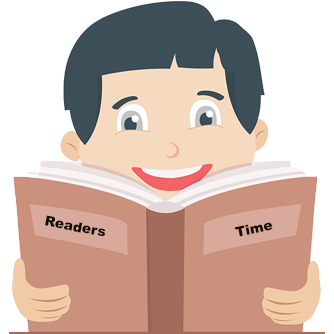The Necessity of Reading for Learning

In today’s fast-paced world, the importance of reading cannot be overstated. Reading is a cornerstone of learning, providing a gateway to knowledge, cognitive development, and personal growth. This article delves into why reading is indispensable for effective learning and how it benefits individuals across various dimensions.
1. Foundation of Knowledge Acquisition
Information Access
Reading opens doors to an immense reservoir of information. From textbooks and scientific journals to novels and newspapers, reading materials cover a wide range of subjects, offering insights and knowledge that fuel intellectual curiosity.
Self-education
One of the greatest advantages of reading is its role in self-education. Unlike formal education, which follows a structured curriculum, reading allows individuals to explore topics of personal interest at their own pace. This self-directed learning fosters independence and a lifelong love for learning.
2. Cognitive Development

Critical Thinking
Reading is a mental workout. It engages the brain in ways that enhance critical thinking and analytical skills. By interpreting, questioning, and synthesizing information, readers develop the ability to think deeply and critically about complex issues.
Vocabulary Expansion
Exposure to diverse texts introduces readers to new words and phrases, significantly expanding their vocabulary. A rich vocabulary not only improves communication skills but also enhances the ability to comprehend and express complex ideas.
Comprehension Skills
Regular reading improves comprehension skills. The ability to understand and interpret text is fundamental to learning. It enables learners to grasp the essence of what they read, make connections between concepts, and retain information more effectively.
3. Improved Focus and Concentration
Mental Discipline
Reading demands focus and concentration. As readers delve into a book or article, they must pay attention to details, follow the narrative, and understand the context. This practice of sustained attention helps in developing mental discipline and trains the brain to maintain longer periods of focus.
Attention Span
In an era of constant digital distractions, regular reading can help improve attention spans significantly. Readers who can concentrate for extended periods while reading often find it easier to maintain focus in other areas of their lives, including academic and professional pursuits. The practice of focusing on a single task, such as reading, can translate into better attention management in daily activities.
4. Enhanced Imagination and Creativity
Visualization
Reading descriptive texts stimulates the imagination. As readers visualize scenarios, characters, and settings, they exercise their creative faculties. This ability to create mental images enhances imaginative thinking and creativity, allowing readers to explore new ideas and concepts that they might not encounter in their everyday lives.
Innovative Thinking
Diverse genres and writing styles expose readers to different perspectives and ideas. This exposure can inspire innovative thinking and creative problem-solving. By encountering unique narratives and concepts, readers learn to approach problems from various angles, fostering an environment where new and innovative solutions can be developed and applied to real-world situations.
5. Cultural Awareness and Empathy

Diverse Perspectives
Reading books from different cultures and authors provides insight into various ways of life and thought processes. This exposure to diversity helps readers understand and appreciate cultural differences, fostering global awareness. It broadens their worldview and encourages open-mindedness, essential traits in our increasingly interconnected world.
Empathy Development
Literature, in particular, allows readers to experience the lives of characters, understand their emotions, and walk in their shoes. This deep connection with characters’ experiences and emotions helps readers develop empathy, a crucial skill for social interaction and emotional intelligence. By understanding the struggles and triumphs of characters, readers can relate better to the people around them.
6. Academic Success
Core Curriculum
Reading is integral to most academic subjects. From science and history to literature and mathematics, understanding course material often hinges on strong reading skills. Proficient readers can grasp concepts more quickly and with greater depth, enabling them to excel in their studies and achieve higher academic success.
Performance Improvement
Good reading skills are often correlated with better academic performance. Students who read regularly tend to excel in tests and assignments across all subjects. Reading enhances their ability to comprehend instructions, understand questions, and articulate responses effectively. This improved academic performance can open doors to further educational and career opportunities.
7. Lifelong Learning
Continuous Improvement
Reading keeps the mind active and engaged, promoting continuous intellectual growth. Lifelong readers are more likely to stay informed about current events, scientific advancements, and cultural trends, enabling them to adapt and thrive in a rapidly changing world. This continuous pursuit of knowledge helps individuals stay relevant and competitive in their personal and professional lives.
Adaptability
Lifelong readers are more adaptable to new information and changes in their fields of interest. They develop a growth mindset, always seeking to learn and improve. This adaptability is a valuable trait in both personal and professional contexts, allowing individuals to navigate challenges and seize new opportunities with confidence and resilience.
Practical Benefits
Problem-Solving
Reading about various topics can provide solutions and ideas applicable to real-life problems. Whether it’s a self-help book offering strategies for personal growth or a technical manual explaining how to fix a device, reading equips individuals with practical knowledge and skills. This ability to apply knowledge to practical situations can lead to better decision-making and problem-solving in everyday life.
Communication Skills
Improved vocabulary and comprehension translate into better writing and speaking abilities. Readers are often better communicators, able to articulate their thoughts clearly and persuasively. This proficiency in communication is essential in almost every aspect of life, from professional settings to personal relationships. Effective communication skills can lead to more successful interactions and improved relationships.
Final Words
Reading is not just a skill but a fundamental aspect of learning that permeates every facet of life. It is a tool for knowledge acquisition, cognitive development, and personal growth. By fostering critical thinking, expanding vocabulary, enhancing comprehension, and improving focus, reading equips individuals with the intellectual tools needed for academic success and lifelong learning. Moreover, it cultivates empathy, cultural awareness, and creativity, enriching readers’ lives in profound ways. Embracing the habit of reading is, therefore, an investment in one’s intellectual and personal development, making it an indispensable element of effective learning.






